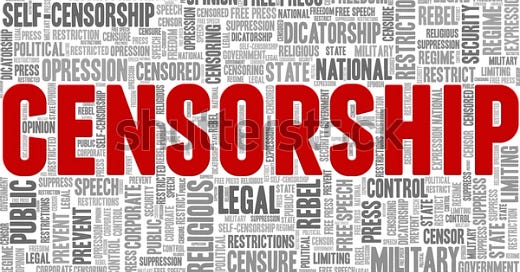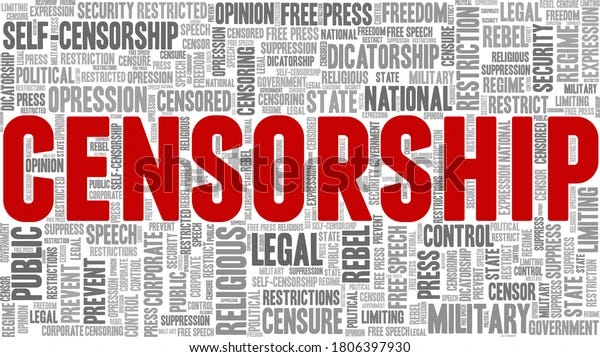The Broadcast Bill says much about the BJP’s opaque lawmaking
The secretive drafting of a far-reaching media regulation bill exemplifies a broader shift in BJP Govt's approach to the legislative process
Published in the Indian Express
The BJP Government is drafting a Bill to bring all news and news-adjacent content online - in all forms - text, podcasts, video - under its sole regulatory oversight. If the attempt sounds undemocratic, the modus operandi of drafting such a Bill is even more so - the draft has not been placed in the public domain. News reports indicate that the Bill is being distributed to select “stakeholders” for feedback after taking an undertaking that they would not share it further. Moreover, it is reported that each copy has a unique watermark across each page so that the Ministry can trace leaks.
The intent of the Bill is clear. While the Government has largely been able to cow down traditional media, intrepid online news websites and individuals have amassed a following rivaling mainstream media - and have used their reach to challenge the Government narrative. Consequently, the BJP, aiming for 370 seats of its own accord and untrammeled power, now finds itself running a minority government saddled with two coalition partners. Controlling the narrative is seen as key for its continuance and success in subsequent elections.
The Government first tried to establish a monopoly over truth through its "fact-checking" initiative, wherein online intermediaries were mandated to take down any information identified as "false" or "misleading" by the Government. That attempt was stayed by the Supreme Court. This Bill is Scene 2 of the same act. It is an obvious attempt to muzzle online news and commentary critical of the Government. While copies of the Bill - marked "Confidential, not for circulation" on each page - are floating online, it is best to reserve commentary on specific provisions until the Bill is officially in the public domain. However, the manner of drafting the Bill requires serious discussion given its implications for Indian democracy.
This secretive drafting of a far-reaching media regulation bill is just the latest manifestation of a troubling pattern that has emerged over the past decade and exemplifies a broader, more systemic shift in how the BJP government has approached the legislative process as a whole.
The BJP has adopted a four-part modus operandi towards drafting legislation: First, legislation is drafted in secret with drafts shared selectively for feedback. Second, the final Bill may or may not be shared for public consultation, and if it is, there is no feedback on why suggestions are or aren't accepted. Third, Bills are not sent to the Standing Committee for deliberation and are passed in Parliament, often without discussion, within a matter of minutes. Fourth, most Bills are only shell laws with large gaps to be filled in through "rules" made by the Competent Authority (read: the Executive). This move towards secrecy in legislation drafting, combined with the increased use of shell laws and delegated legislation, has systematically undermined the role of the legislature and has centralized power in the Executive. For example, the recent IT Rules amendments were made without consultation. The Digital Personal Data Protection Act is largely a shell legislation with rules still awaited
This approach stands in stark contrast to the pre-legislative consultation process introduced under UPA 2 at the behest of the NAC led by Mrs. Sonia Gandhi. That process mandated all ministries to "proactively publish" proposed legislations and rules for public feedback. While the pre-legislative consultative process was unevenly implemented, the contrast in approach is striking. The BJP's method appears designed to circumvent public scrutiny or input. The UPA approach, in contrast, recognized the importance of public participation in the legislative process. This shift from an open process to an opaque one exemplifies the erosion of democratic institutions under the BJP. The party has often decried protest politics and deployed state agencies against dissenters, yet by undermining platforms for national deliberation, it inadvertently privileges protest as the primary means of dissent. This disregard for consensus-building reflects the BJP's view of democracy not as a participatory process of governance, but as a periodic mandate to rule without restraint.
The Broadcasting Bill offers a pivotal opportunity for the Opposition. There is widespread disquiet about the Bill among media, tech platforms, and civil society. The Opposition can seize this moment to create robust space for public engagement and policy development on this Bill - and beyond. This can include establishing 'shadow cabinets' to foster public deliberation separate from party politics, and articulating an alternative vision for the country wherein a revitalized Opposition can go beyond criticism to offer constructive alternatives. Citizens, civil society organizations, and the media all have a crucial role in demanding transparency and accountability - and the Opposition can provide the institutional framework for each section to play its role in revitalizing our democracy.
Also Read:




